New food forum in Poland
New Food Forum, the largest conference in Poland, is entirely dedicated to the topic of alternative protein sources and plant-based foods. The fourth edition of the event, like its predecessors, aimed to bring together key stakeholders in the food industry to exchange knowledge and experience, as well as networking. The Embassy of the Kingdom of the Netherlands was once again a strategic partner of the event.

The latest market research indicates that the plant-based alternatives industry is breaking new sales records somewhat more slowly than before, but consistently. Although the slowdown due to high inflation is noticeable, plant-based dairy and meat equivalents are still growing faster than their traditional competitors. – stated Marcin Tischner from Pro Veg, the organizer of the event.
In the first part of the meeting, speakers presented the latest data on consumer behavior, sales numbers in the plant-based meat and dairy alternatives sector. Then the experts invited during the first panel discussed, among other things, the economic and legal environment of the sector of new, innovative product categories that need attention. Finally, a very high-profile topic was taken up, including in Poland - cellular agriculture, and when will we try the first Polish meat from cellular agriculture?
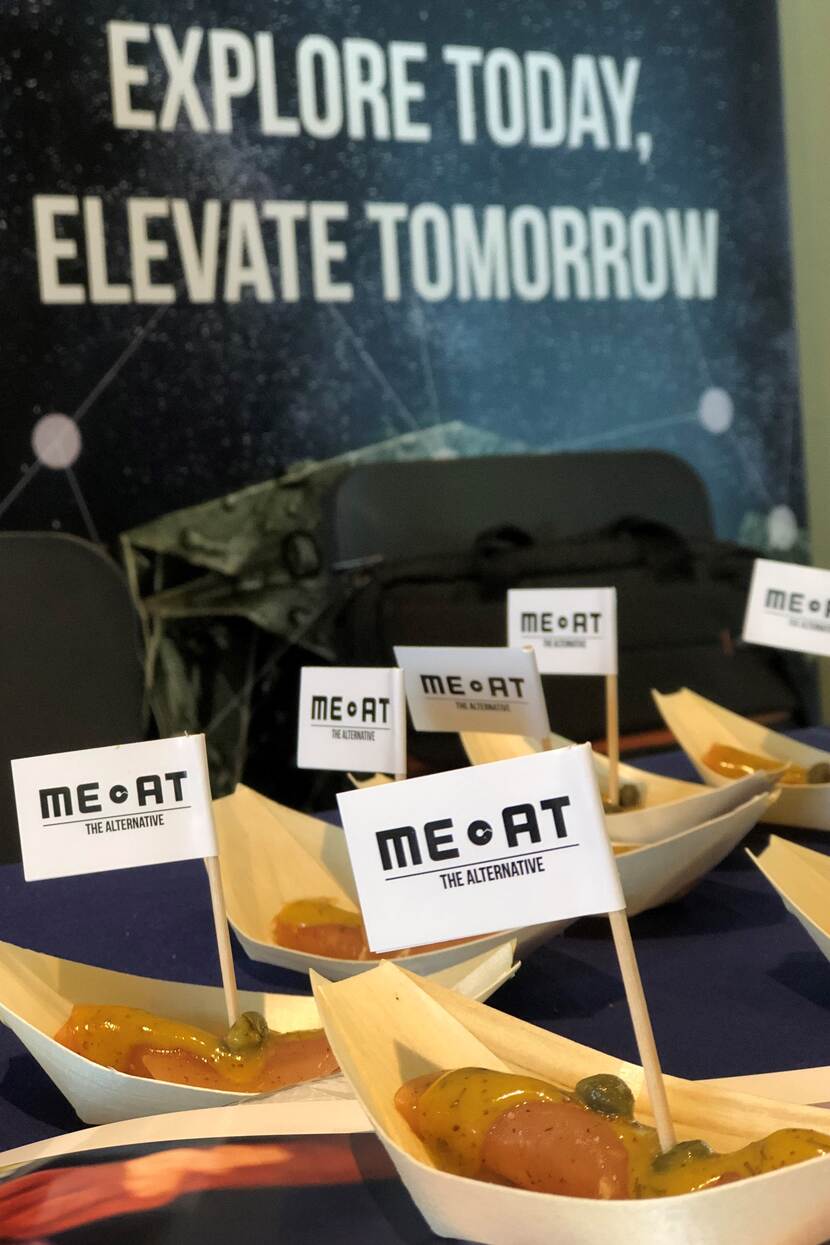
It was pointed out that Poland still lacks good quality plant-based alternatives to cheese, eggs and beef. New products in these categories are appearing, but they are not very versatile, e.g. the product melts well, but loses flavor, or imitates the taste, smell and appearance of cheese very well, but does not melt or loses properties at higher temperatures.
The same is true of egg substitutes - they work well in cakes and baked goods, but do less well as a solo product or perform well as scrambled eggs, but are not suitable for baked goods.
According to a representative of the COO of LABFARM SP., a Polish company that is working on in-vitro meat, there is a chance to present the result of its work to the world in the near future.
The panelists stressed the problem of naming cell-cultured meat and the great fear of consumers about such a product. Opinion polls are underway in Poland on what such meat would best be called so as not to alienate consumers from the product at the start.
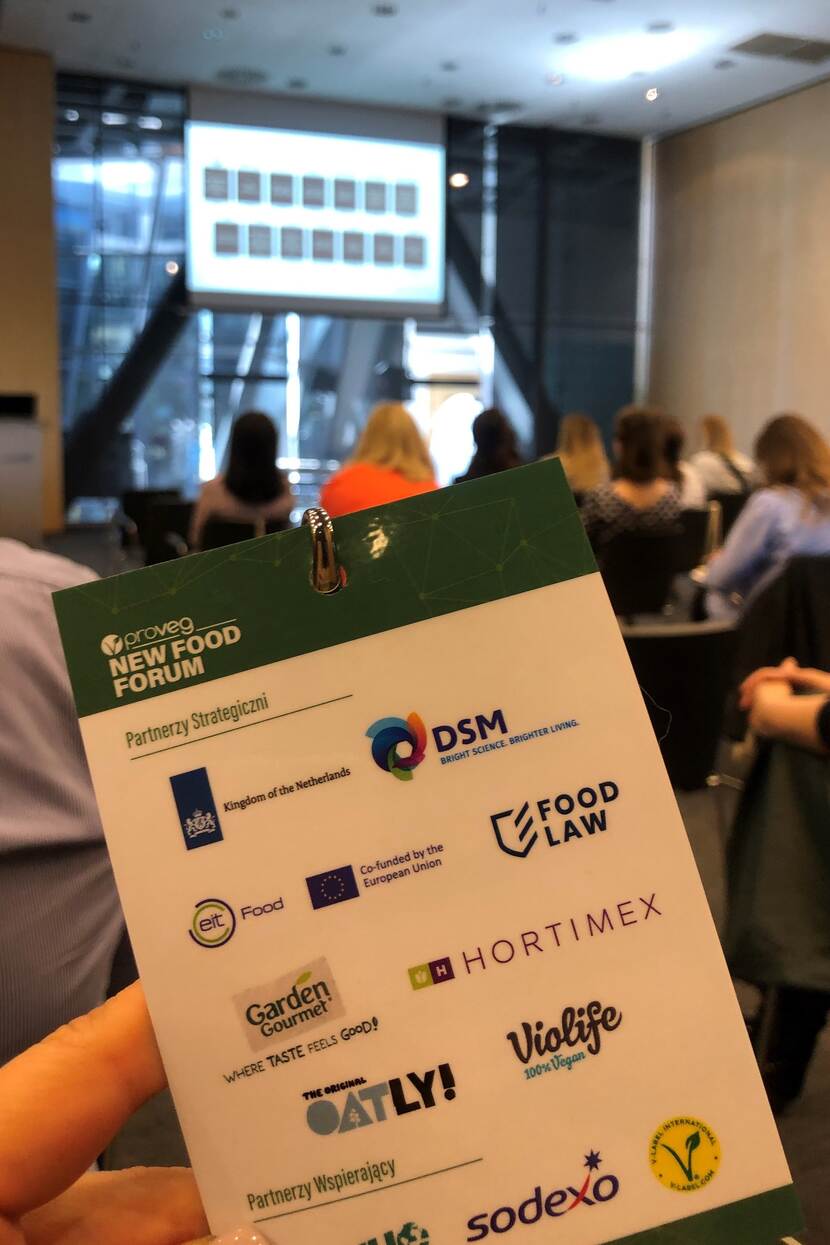
The issue of the relationship of UN climate policy in the context of the challenges of the food sector was raised by Kamil Wyszkowski National Representative, Executive Director of United Nations Global Compact Network Poland, signaling that our time to react against inevitable climate change is shrinking badly and we can't pretend that things are fine. He mentioned that the measures that the European Union is promoting, he said, are going in the right direction, but the rest of the world needs to be encouraged to make similar changes.
The second part of the event features two stages and different thematic blocks - "Ingredients, Health, Sustainability," "Consumers and Communication," "Development and Financing," and "Systemic Change," i.e. plenty of practical knowledge on such topics as nutritional enrichment of plant products or effective fundraising for projects.
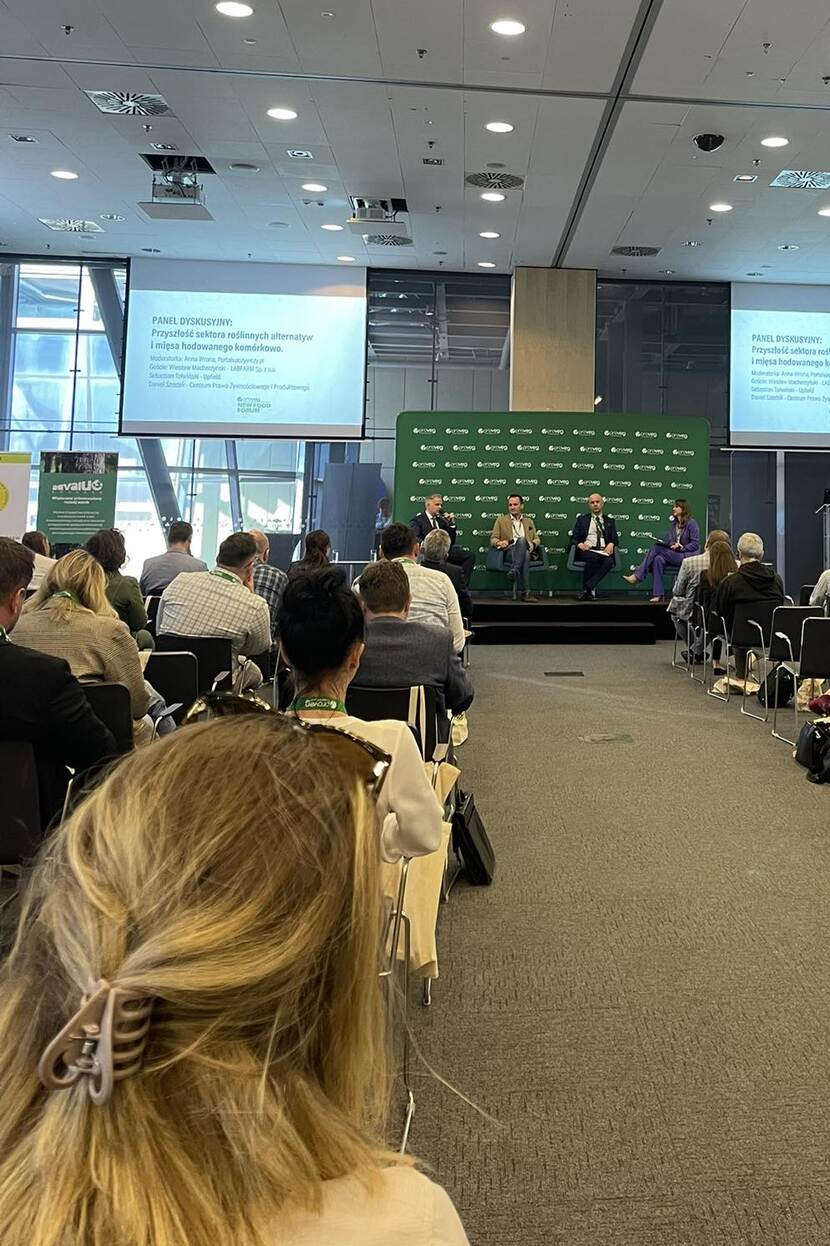
In the System Change part, a lecture titled Open innovation as a tool to accelerate the Protein Transition: The Dutch Bean Deal was given by Dutch entrepreneur Ralph Koekoek, who is the founder and director of BLUE FIFTY B.V. BlueBean is a project started by Blue Fifty started a project called Blue Bean, in cooperation with TOP BV (TOP), to realize the first production facility of Texturized Vegetable Proteins (TVPs) in Poland. The processing facility will process locally grown proteins crops such as pea and lupin to produce high quality TVPs to be used by the food industry to processing in meat replacement products.
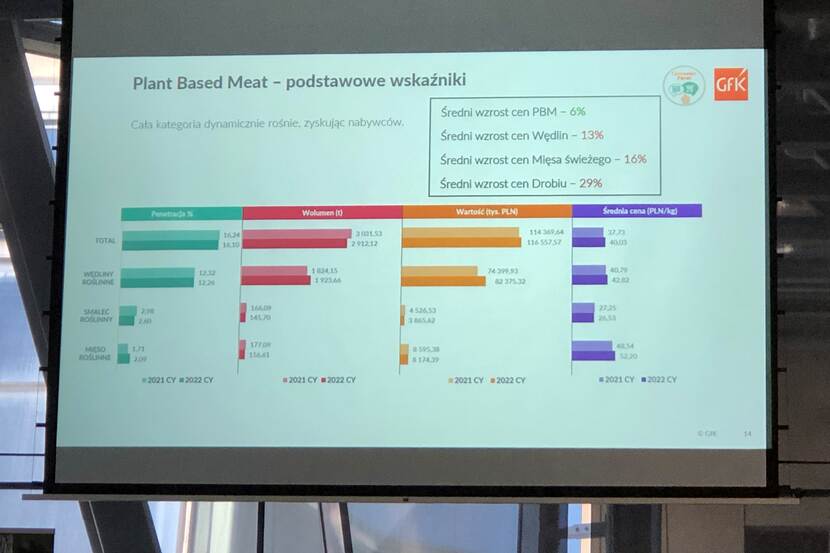
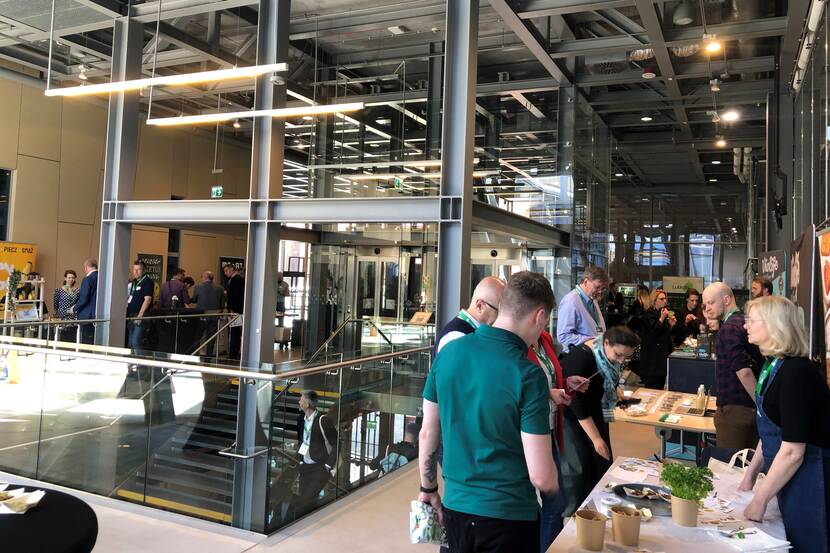
Ralph recounted how the Netherlands, as part of its national protein strategy, has set strong goals for increasing sustainable and local protein production. He outlined that achieving such goals requires strong cooperation among private actors, but also good alignment with public policy and incentive schemes, and the Bean Deal is the result of this as an open innovation process in which parties in the value chain work together to achieve a sustainable protein transition.
A number of exhibitors also participated in the event, including ME:AT, Vivera, DSM and Upfield.